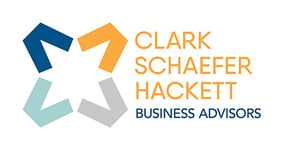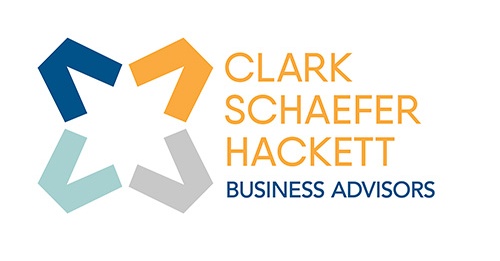How Businesses Can Still Reduce Their 2024 Tax Burden
While December is here and the end of the year is near, businesses can still take action to reduce their 2024 tax liability. Opportunities such as leveraging pass-through entity tax (PTET) deductions, maximizing the qualified business income (QBI) deduction, and timing income and expenses to optimize tax brackets are all still on the table for 2024. With an uncertain tax landscape for 2025 and beyond, ensure your business doesn’t leave any money on the table in 2024.
President-Elect Trump is set to take office early next year, alongside a unified GOP Congress. However, the future of the tax landscape remains uncertain. The good news for businesses is that there are still opportunities to reduce their federal tax liability for 2024 before the year ends.
Pass-Through Entity Tax Deduction
About three dozen states offer some form of the pass-through entity (PTE) tax deduction on the individual tax returns of owners of pass-through entities, such as partnerships, S corporations and limited liability companies. These deductions are intended to bypass the Tax Cuts and Jobs Act’s $10,000 limit on the state and local taxes (SALT) deduction.
Details vary by state, but if available, PTE tax deductions typically allow an entity to pay a mandatory or elective entity-level state tax on its income and claim a business expense deduction for the full amount. In turn, partners, shareholders or members receive a full or partial tax credit, deduction, or exclusion on their individual tax returns, without eating into their limited SALT deduction.
Qualified Business Income Deduction
The qualified business income (QBI) deduction allows owners of pass-through entities, including sole proprietors, to deduct up to 20% of their QBI. The deduction is set to expire in 2026, at which point income would be taxed at owners’ individual income tax rates. (However, with Republicans in control of the White House, the Senate and the House of Representatives beginning in 2025, tax experts don’t expect the deduction to expire.)
To make the most of the QBI deduction for 2024, consider increasing your W-2 deductions or purchasing qualified property. You also can avoid applicable income limits on the deduction through timing tactics.
Income and Expense Timing
Timing the receipt of income and payment of expenses can cut your taxes by reducing your taxable income. For example, if you expect to be in the same or a lower income tax bracket next year and use the cash method of accounting, consider delaying your customer billing to push payment into 2025. Accrual method businesses can delay shipments or services until early January for the same effect. Similarly, you could pre-pay bills and other liabilities due in 2025.
Bonuses often make a prime candidate for careful timing. A closely held C corporation might want to reduce its income by paying bonuses before year-end. This applies to cash-method pass-through businesses, too. Accrual method businesses generally can deduct bonuses in 2024 if they’re paid to nonrelatives within 2½ months after the end of the tax year.
Asset Purchases
There’s still time to make asset purchases and place them into service before year-end. You can then deduct a big chunk of the purchase price, if not the entire amount, for 2024.
The Section 179 expensing election allows 100% expensing of eligible assets in the year they’re placed in service. Eligible assets include new and used machinery, equipment, certain vehicles, and off-the-shelf computer software. You also can immediately expense qualified improvement property (QIP). This includes interior improvements to your facilities and certain improvements to your roof, HVAC, and fire protection and security systems.
Under Sec. 179, in 2024, the maximum amount you can deduct is $1.22 million. The deduction begins phasing out on a dollar-per-dollar basis when qualifying purchases exceed $3.05 million. The amount is also limited to the taxable income from your business activity, though you can carry forward unused amounts or apply bonus depreciation to the excess.
For this year, bonus depreciation allows you to deduct 60% of the purchase price of tangible property with a Modified Accelerated Cost Recovery System period of no more than 20 years (such as computer systems, office furniture and QIP). The allowable first-year deduction will drop by 20% per subsequent year, zeroing out in 2027, absent congressional action. Bonus depreciation isn’t subject to a taxable income limit, so it can create net operating losses (NOLs). Under the TCJA, NOLs can be carried forward only and are subject to an 80% limitation.
Important: Depreciation-related deductions can reduce QBI deductions, making a cost-benefit analysis vital.
There’s Still Time to Act
No business wants to leave money on the table. Clark Schaefer Hackett is here to help you identify and leverage every opportunity to minimize your tax burden effectively. By staying proactive and exploring tailored strategies, you can ensure your business remains financially efficient and well-prepared for future growth.
Business Tax
We specialize in tax, so your business can focus on what it does best.
.webp?width=100&height=131&name=Lawrence__Brittany_New_Web%20(1).webp)
Brittany Lawrence
Shareholder|
Substantial tax changes are on the horizon as President-Elect Donald Trump returns to the White House in 2025. From expanding the Tax Cuts and Jobs Act to introducing new tax breaks for businesses and individuals, the coming year is set to reshape the tax landscape. Stay ahead of the curve and read our full article written by CSH Shareholder and Tax Leader Brendan Walsh. |
|
The new year is around the corner - are you ready to thrive? Join us for a game-changing webinar featuring top consulting experts ready to help you seize 2025 with confidence.
Walk away with actionable insights and a roadmap to make next year your best yet. Register today and take the first step toward your 2025 transformation! |
Copyright Clark, Schaefer, Hackett & Co. All content provided is for informational purposes only. Matters discussed are subject to change. For up-to-date information on this subject please contact a Clark, Schaefer, Hackett & Co. professional. Clark, Schaefer, Hackett & Co. will not be held responsible for any claim, loss, damage or inconvenience caused as a result of any information within these pages or any information accessed through this site.
images courtesy of Clark Schaefer Hackett and iStock

















